Our chinchilla live in a family environment surrounded by love in foster families. They are always clean, groomed, in excellent health, up to date vaccinations and are monitored by the veterinarian. A clean environment and personalized service to make the adoption of your dream kitten a pleasant moment for all..

Looking For Chinchilla for sale?.we are Specializ in hand raised, tame and healthy chinchilla babies. Babies ready now, place your deposit online. Pick-up or transportation. At our cattery, we take great care in carefully selecting adoptive families for each of our chinchillas. If we believe your home or lifestyle isn't suited to one of our chinchillas, we'll try to direct you to the right thing for you. Please note that we do not separate babies from their mothers before 3 months, the age necessary for their physical and emotional well-being. For more than 30 years, we’ve been leading the way — creating the best possible customer experience
Cattery operates under the belief that quality breeding to better the chinchilla breed is imperative. The makes wonderful pets because they are curious, playful, loving and entertaining.• Our chinchilla for sale are Scanned for HCM Annually• We Offer a Three-Year Congenital Defect Guarantee• We Offer Life-Long Support for our chinchilla Family• We Send a Care Package Home with all chinchilla(Including an Extra Food Samples)Our Cattery strives to raise chinchilla that are happy, healthy, friendly, and well socialized.
The animal originates from Andes Mountains More precisely in Peru and Chile. At an altitude of 3000 m. The Domestic is a nocturnal rodent. This small mammal resembles squirrels. His ears are large and almost completely bare. Its tail measures 7 to 15 centimeters. There are 3 types the Liechtenstein (short-tailed), the Brevicaudata (smaller short-tailed) and Lanigera(long tail and longer hair). Their fur is dense and soft, speckled gray on the back and whitish on the belly. Their dentition is made up of incisors and molars that grow continuously (a few millimeters per month). The chinchilla for sale has 5 toes on the front limbs and 4 on the hind limbs. He is an excellent climber. It is part of the family, native to the Andes mountain range (more precisely in Peru, Bolivia and Chile). It lives in altitudes of 3000 to 5000 meters approximately. It lives in a community of 10 to 100 chinchillas. Its longevity is 10 to 15 years but there is a chinchilla that lived up to 20 years.
Get Startedit reaches sexual maturity at 9 months. The litter consists of 1 to 3 individuals. Gestation lasts 110 to 120 days. Once the young are born, the male and female can be kept in the same cage.
Like all rodents, they need to constantly wear down their teeth. Therefore, it is advisable to provide the animal with a wooden toy designed for it. They also need a sand bath.
It is crepuscular and nocturnal, but can adapt to daytime life. It is friendly and likes to be handled gently. Sudden movements and shrill noises make it anxious. It rarely bites unless it is afraid or feels threatened.
Regular chinchilla feed and dry hay daily. Avoid giving him fruits and vegetables because his system is not adapted to this type of food. However, you can occasionally give him a raisin or a treat made especially for him.
After you pick your chinchilla up from the breeder or have it shipped, you should keep your chinchilla coat on the same diet as your chinchilla breeder recommend. You can switch your chinchilla cage diet later to a different type of food. However, when you change your chinchilla’s food, please remember to make change very slowly over 3 days or so mixing a tiny portion of the new food with the existing food and increasing the amount every day until the change is complete.You should be careful when you start looking for chinchilla for sale
Get StartedComing mainly from the wild species Chinchilla lanigera, it was very probably hybridized to a lesser extent with the other wild species,brevicaudata, even rarer because it was almost decimated for its fur at the beginning of the 20th century. Successfully bred in captivity since 1923. It was selected above all for its dense and silky fur, but this domestic baby chinchilla has also been one of the new pets for fifteen years. Unlike wild protected species, it is not endangered. It is the chinchilla best known to furriers, laboratories and the general public. The female is bigger than the male. The female weighs 450 to 800 grams and the baby chinchilla male 400 to 500 grams. Enemies of chinchillas are ferrets and snakes. The chinchilla has a crepuscular and nocturnal activity but it adapts to the daytime life of its owners. The maturity of the baby chinchilla males is at 9 months and that of the females is 4 to 8 months. However, they can only reproduce from 7 and 9 months. Females can have 1 to 3 young per litter. In a year, females can have 2 litters. Gestation is 110 to 120 days. They are viviparous. Weaning is between 50 and 60 days. The young are born fully developed and able to leave the nest. They feed exclusively on milk for the first few days and, gradually, will begin to eat with their parents.
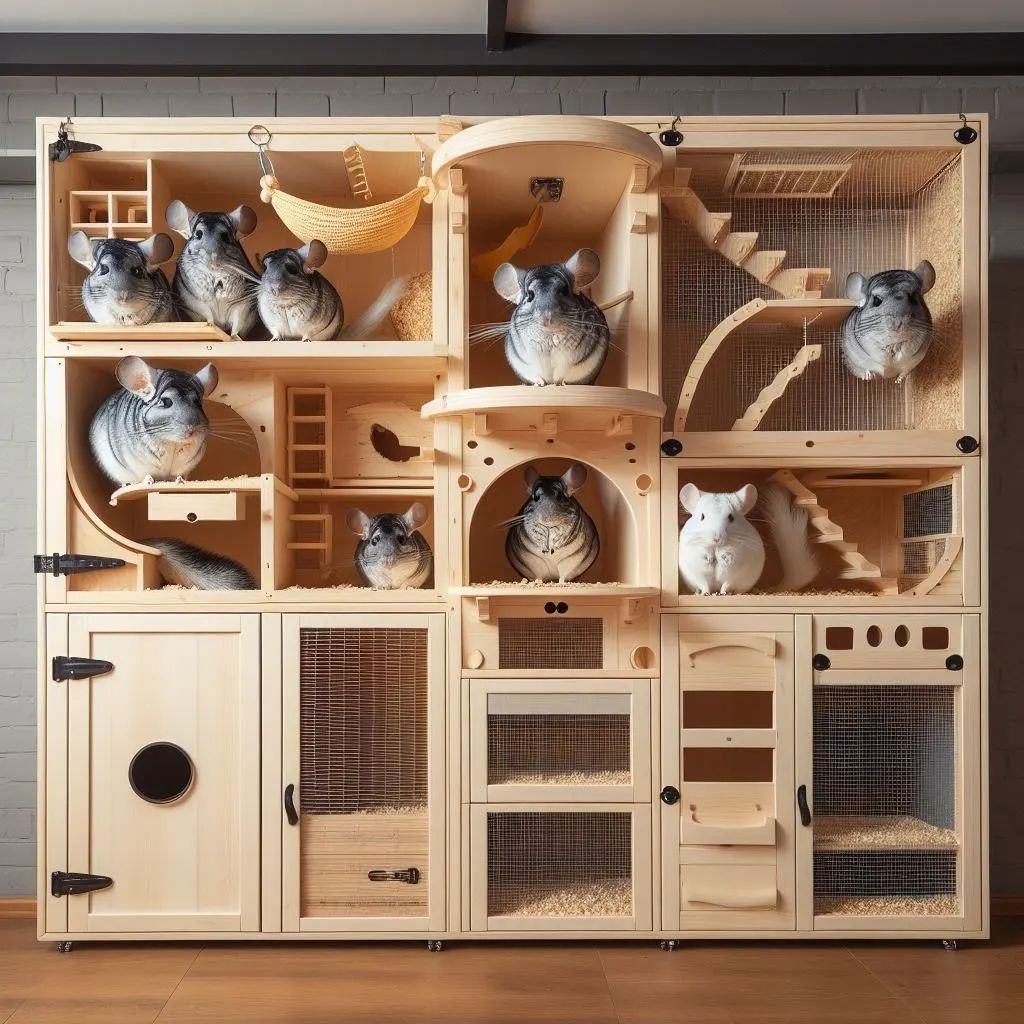
The Chinchilla for sale near me must have a large, spacious cage with several floors of at least 100 x 50 x 80 cm, so that it can jump high. it is necessary to add pipes, shelves, branches, stairs, hiding place. As litter you can use thick hay, wood shavings or sawdust, but cat litter should be avoided, as it can be eaten. For the we can still put in his cage a place where he could take a bath to remove the excess sebum he has on his skin. For this you need sand baths with specific bathing soil or, failing that, a mixture of equal parts of talc and very fine sand so that he can roll around and take a good sand bath. You have to keep this sand very clean. Place a wooden nest high up on one side of the cage. Line the cage with large branches to provide exercise. The temperature of your chinchilla's location should be around 20°C, have 12 hours of light, and the humidity should be 50% or more. They are more sensitive to heat than to cold. Avoid placing the cage in a humid place or exposed to drafts.
Get StartedLooking For Chinchilla for sale? . we are Specializ in hand raised, tame and healthy chinchilla babies. Babies ready now, place your deposit online. Pick-up or transportation
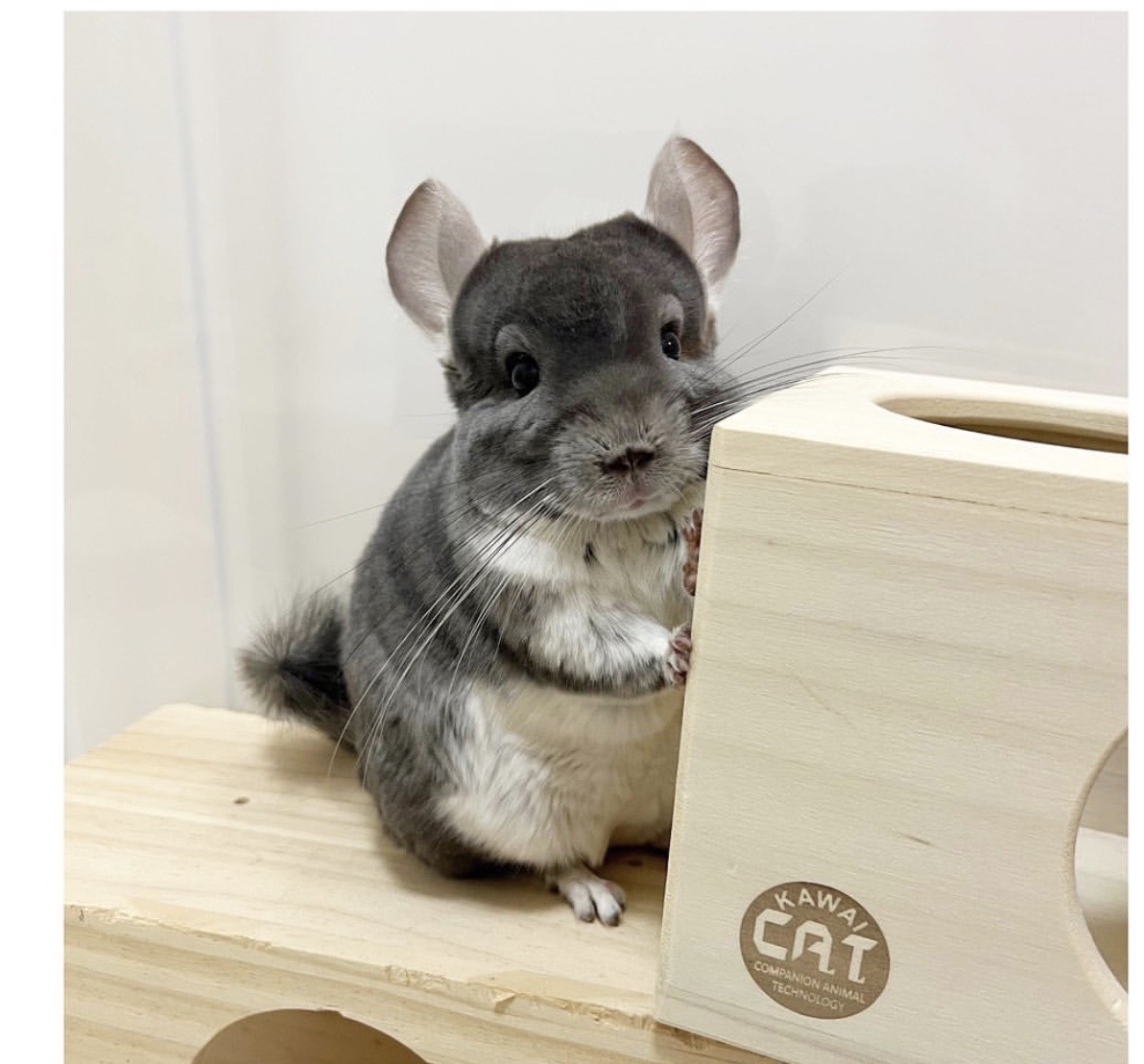
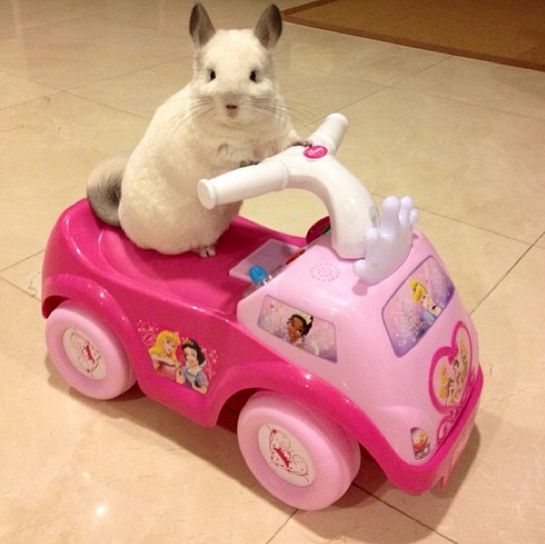




Ethical and professional animal farms that respect animal welfare don't live off their "passion." They live for their passion. Here's why
I ask you to read the terms of sale carefully before contacting me. Summary:- Are you ready?- Adopting a young or an adult, the differences.- Reservation/payment method- Mating- Your guarantees.Warning: beware of ads, some individuals sell their chinchillas at 2 months!! The weaning age is 3 months!!!!
Start for free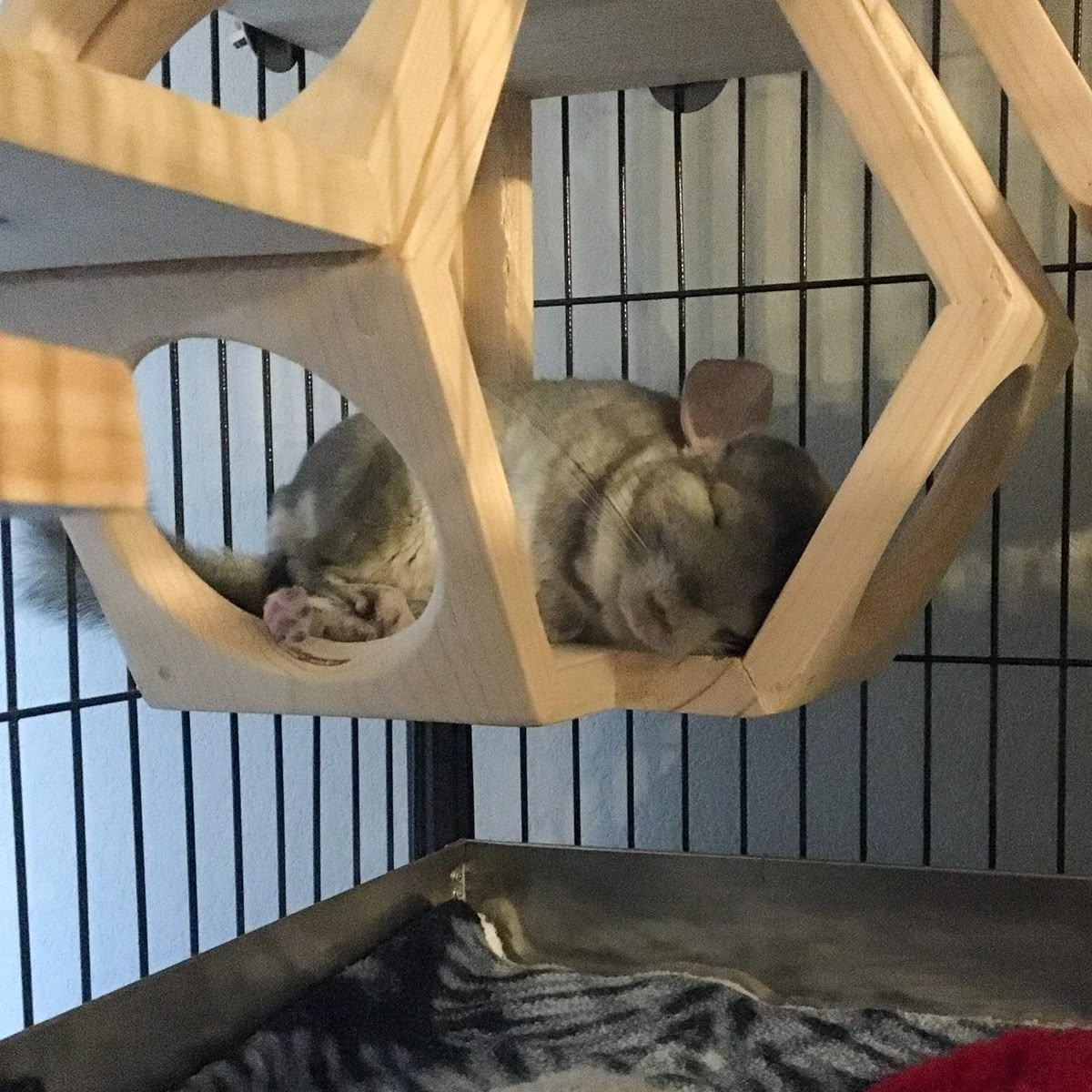
DIET
They consumes 30 to 40 grams of food per day (this is the equivalent of one tablespoon per day) and drinks 10 to 20 ml of water. In the morning we start the day with coarse hay of first cut quality. We give the special baby chinchilla pellets completely (in the evening when he starts to wake up) or we can give a diet of: 50% wheat bran, 25% fresh wheat germ, 5% bone meal , 10% dry yeast and 10% linseed cake. A variety of cereals made of 25% barley, 25% wheat, 25% oats, 20% rolled oats and 5% skim milk powder are added to this basic mixture. One gives half half of the first and the second mixture preferably the evening when he begins to wake up. The Chinchila is a herbivore. In its natural environment it feeds on dry grasses, leaves, bark of bushes, vegetables and fruits. It feeds on cacti plants: it eats the roots, stems, leaves and pulp. He only drinks in the morning dew because water is scarce. When you have him as a pet you should ideally not give him food belonging to other species. Hay as much as you want and twigs of willow, poplar or vine stocks to gnaw on every day and measured feed to avoid being overweight. Treats are not necessary and often given too much will cause digestive problems and diarrhea.
HEALTH
The normal temperature is 38 to 39 degrees Celsius.Digestive disorders: Dental abnormalities, meteorism, enteritis, salmonellosis, infectious enteritis, constipation, internal parasites, reversal of the rectum. Foods of questionable quality cause serious gastrointestinal problems. have a very long intestine, so it is important to give them an optimal diet.Skin conditions: Alopecia (loss of hair), pecking, external parasites, dermatomyositis, lack of daily sand bath resulting in dull fur.Respiratory conditions : pneumonia.Cardiac and circulatory disorders: under stress, heredity.Urinary disorders: Cystitis, bladder stones.Genital conditions: Rings of felted hair around the penis, prolapse of the penis, lack of sexual ardor, endometritis, vaginitis, reversal of the uterus, dystocia, toxemia of gestation.Disorders of the senses and the nervous system: eye: conjunctivitis, keratitis ear: otitis, inflammation of the outer ear, mites.Metabolic disorders: dietary deficiency, vitamin E, thiamin and calcium deficiency.

There is no greater joy for a breeder than knowing that our kittens have found their forever home. Every new photo, every new video of one of my little joys playing, being cuddled or simply lounging on the lap of a member of their new family, fills me with happiness! It is proof that my efforts to select the best breeders, socialize the kittens and support future adopters are paying off. I am proud to contribute to creating unique and lasting bonds between families and their companion.
Our vet told us yesterday that our chinchila is a beautiful kitten. He has one of his own, but he asked me where we got him. He said he is great show quality! Thanks so much guys! We love him so much

Kerbie moved into his new home and met our Dachshund "Adler," with whom he has been inseparable ever since. Kerbie enjoys squeaky toys, walks, running around the yard, and cuddling. He is very friendly to humans and other animals, and he is full of life and energy. He's been the ideal addition to our family!
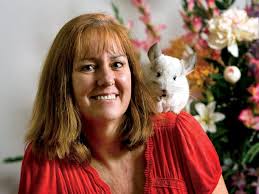
I am absolutely thrilled, with the time I had at Sundown cattery Home! Right from the moment I expressed interest in their chinchila until now. It felt like being welcomed into an loving family environment by the team

The chinchila they have are not just cute but super friendly and sociable which is what I needed in my little furball Charlie who has brought so much joy and liveliness into my home already. Throughout the adoption process and, after getting Charlie home with me the team made sure to keep me informed and it was evident that they truly have a heartfelt affection for their furry friends. A big thanks to them for bringing such an addition, to my family!"
.jpg)
Six months back I got my chinchila , from the Sundown cattery breeders. I am so delighted, with my decision! The team there was really helpful and guided me to select the chinchila for my family situation well; she's affectionate and playful and has added a lot of happiness to our lives already; the cattery was super clean and well looked after which assured me about my choice. Would definitely suggest it!"
%20(1).jpg)
I had a time at the Sundown cattery ! Right, from when I first asked about their chinchila the communication was top notch! They gave me a lot of information, about the breed and what chinchila need specifically. My new pet is healthy. Has such a personality! It's obvious that they truly love their cats and want them to have homes.
